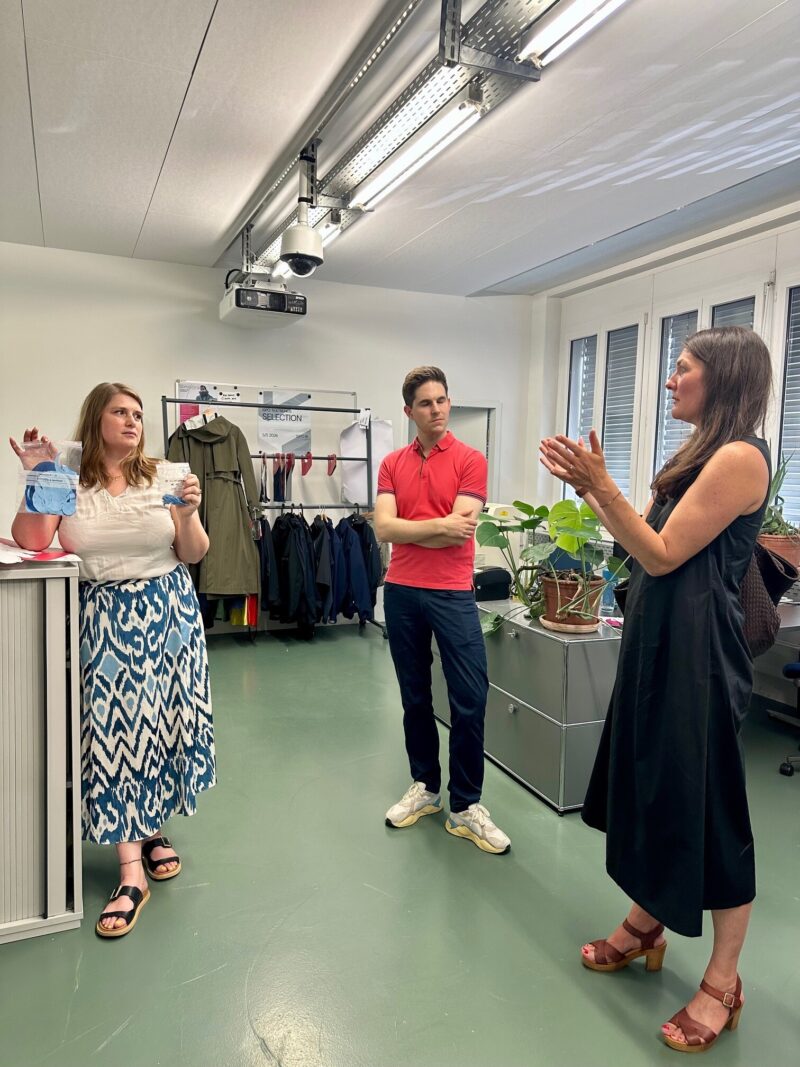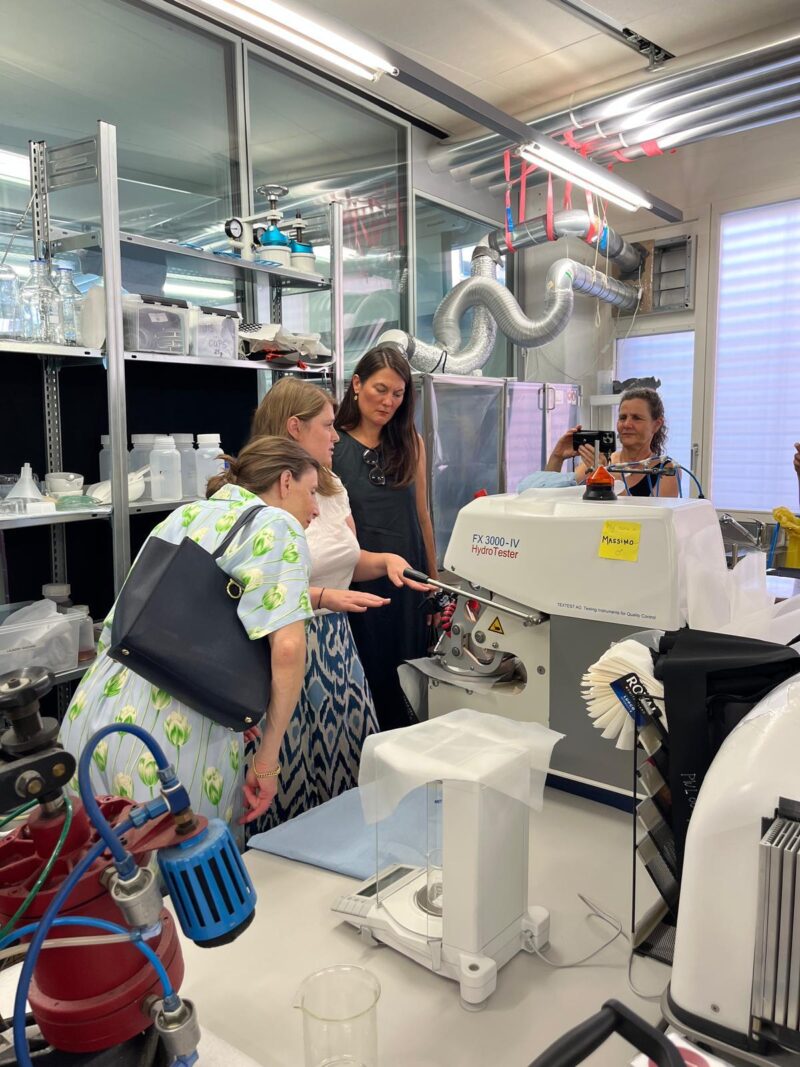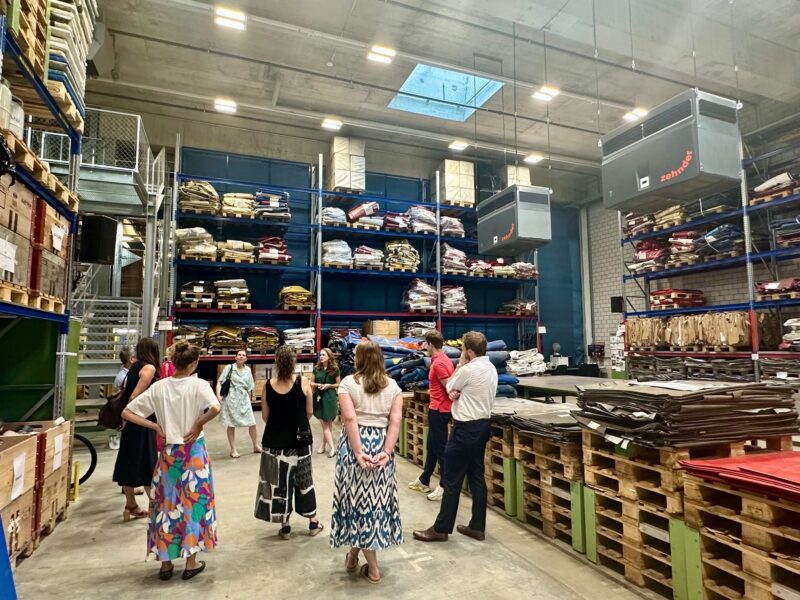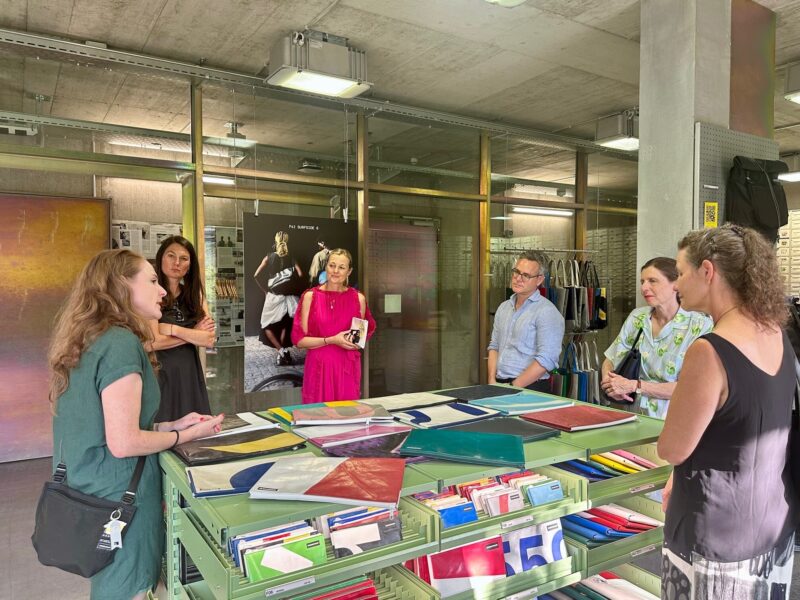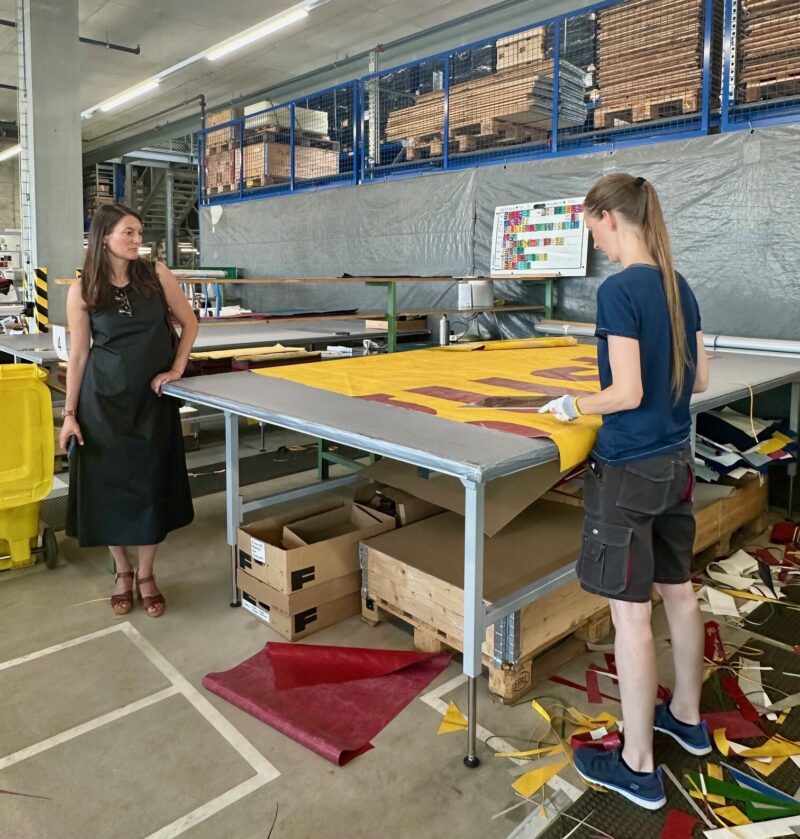Parliamentarians visit Dimpora and Freitag
From foray to reality: How the circular economy works in the textile industry
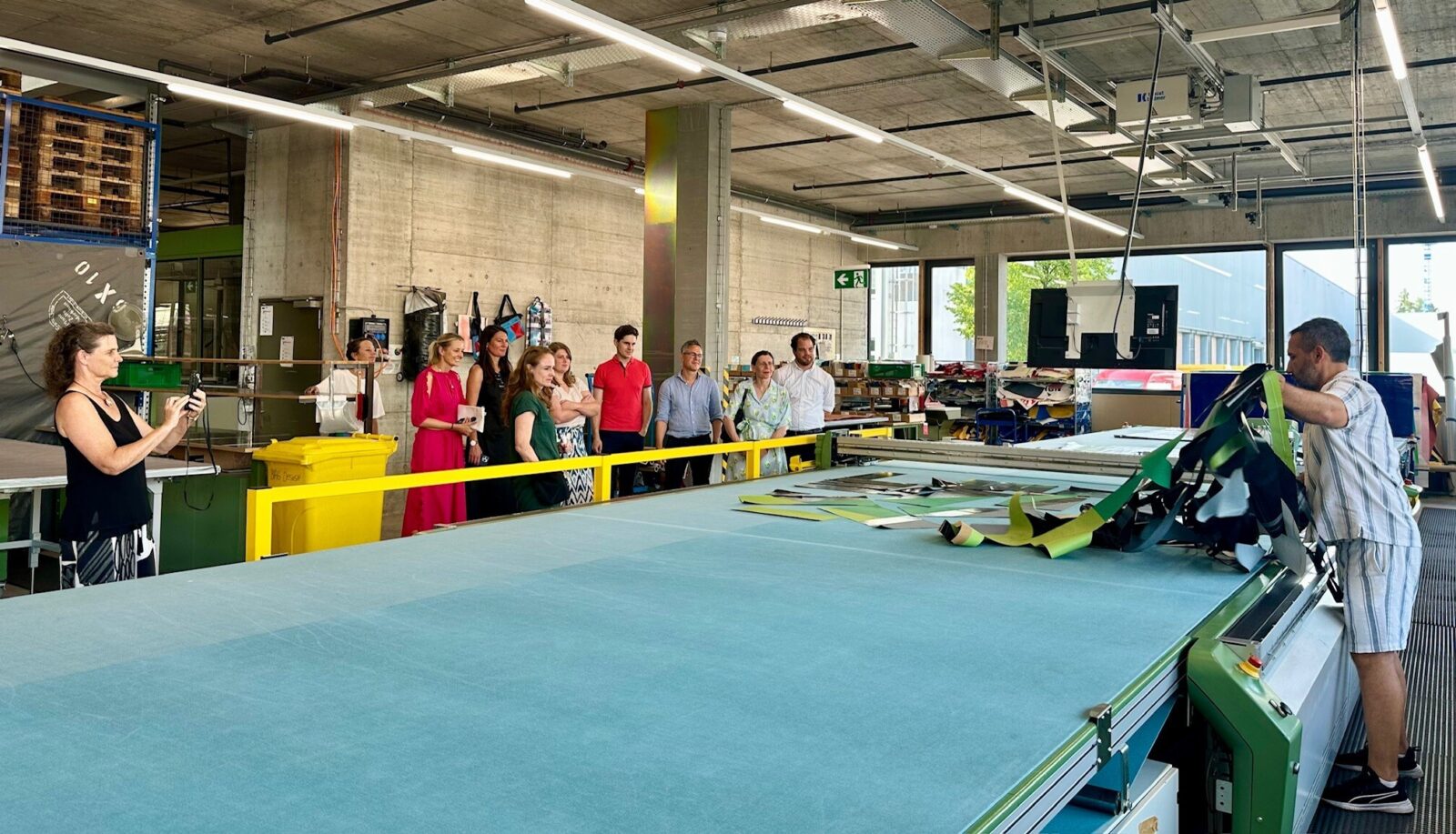
Sustainability and the circular economy in the textile industry are also a political issue: several initiatives are currently on the table in the Swiss parliament. Swiss Textiles opened the doors of selected companies and offered a look behind the scenes to show the members of parliament how the industry is actually working on this.
I am proud that we have such innovative companies in the centre of Zurich.
Together with Zurich GLP member of parliament Tiana Angelina Moser and National Councillors Bettina Balmer, FDP ZH and Barbara Schaffner, GLP ZH, we therefore visited Dimpora and FREITAG on Wednesday, 13 August.
Dimpora, an ETH spin-off founded by Mario Stucki and Anna Beltzung in 2019, specialises in developing waterproof, windproof and breathable membranes for outdoor clothing - and it does so toxin-free (without PFAS). The company currently employs eleven people in Zurich-Oerlikon and works with well-known clothing brands worldwide. The parliamentarians were impressed by the pioneering spirit of the founder: their vision: Their technology should become the standard for all finishes on fabrics from major outdoor brands. In view of the ban on certain PFAS by the EU, which will soon come into force, dimpora's solution is a real alternative for environmentally friendly finishing of rain jackets, hiking boots, etc. The main topics of discussion were the challenges faced by a young company in attracting the right investors and the importance of international research collaborations, such as the EU's Horizon research programme.
FREITAG, also based in Zurich, is of course a pioneer in the circular economy. Founded in 1993 by brothers Markus and Daniel Freitag, the brand began with a simple but revolutionary idea: to produce durable, customised bags from used lorry tarpaulins, old bicycle inner tubes and seat belts. The parliamentarians were given a guided tour of Freitag's production halls by Elisabeth Isenegger, Head of Communications, and CEO Janine Weiz-Bühler, and experienced first-hand how many of the production steps take place in Switzerland. Equally surprising: the company's global presence. National Councillor Bettina Balmer was impressed after the visit: "I am proud that we have such innovative companies in the centre of Zurich.
Today's dialogue with parliamentarians about the initiatives from the sector is important and helps to create an understanding of the challenges in practice.
Circular economy remains political
Upcoming regulations were also discussed at the meeting of parliamentarians and representatives of the textile industry and the association. The EU Textile Strategy will also have a major impact on Swiss companies. The European textile industry is to become circular by 2030, with requirements for products sold in the EU, bans on the destruction of unsold goods, the fight against microplastics in textiles and extended producer responsibility (EPR), under which textile companies in all EU countries must pay contributions to a circular system. In the latest proposal from National Councillor Sophie Michaud Gigon, which will soon be discussed in the Council, she is calling for the Federal Council to draw up an ordinance to introduce an advance recycling contribution on textiles placed on the Swiss market, with the contribution being graded according to ecological criteria.
The industry is already working on such a solution: in 2024, the Fabric Loop association was founded on the initiative of Swiss Textiles to establish a standardised recycling system in Switzerland. "Today's dialogue with parliamentarians about the initiatives from the industry is important and helps to create understanding for the challenges in practice," says Nina Bachmann, Member of the Executive Board of Swiss Textiles.
